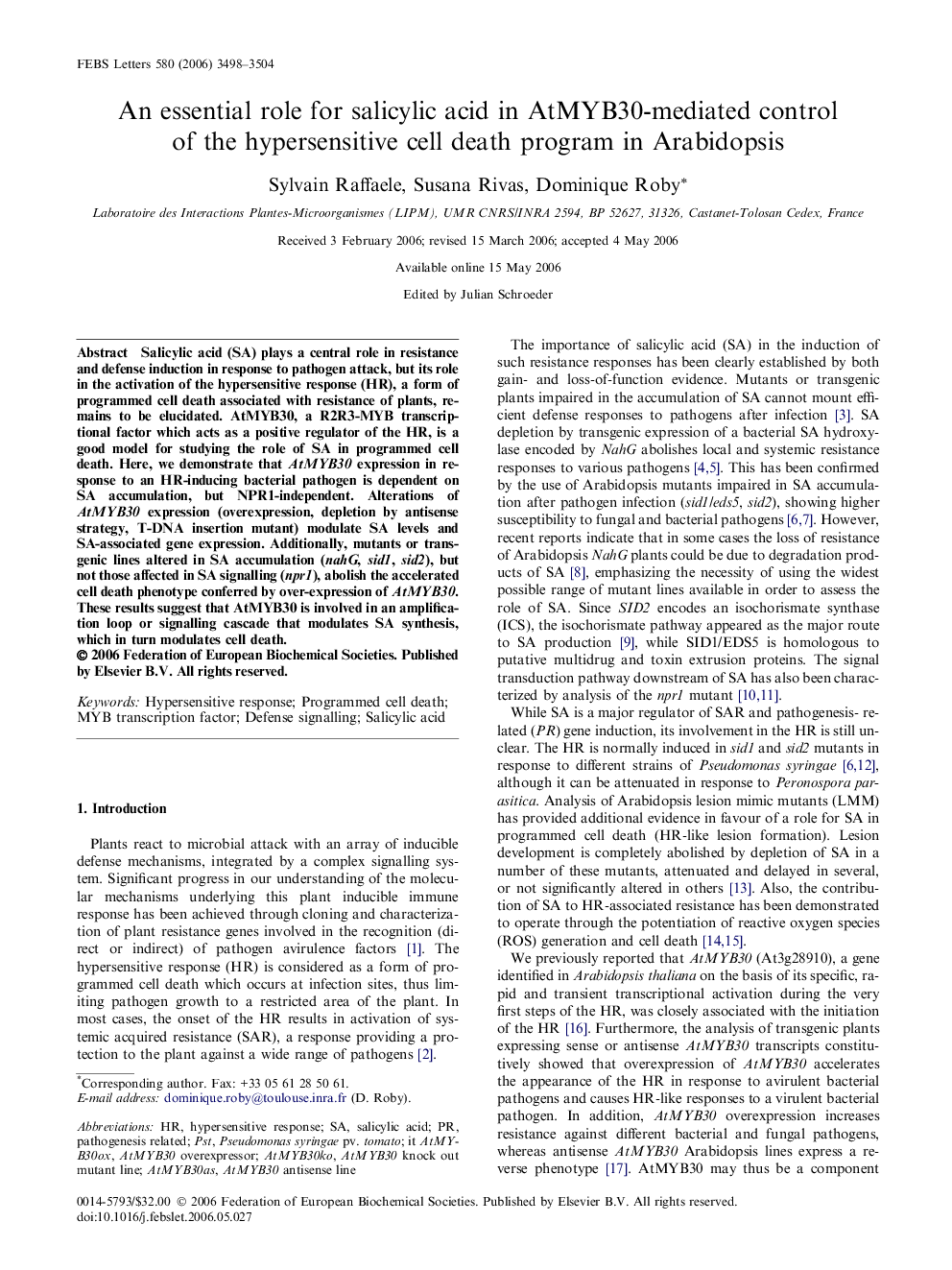| Article ID | Journal | Published Year | Pages | File Type |
|---|---|---|---|---|
| 2051472 | FEBS Letters | 2006 | 7 Pages |
Salicylic acid (SA) plays a central role in resistance and defense induction in response to pathogen attack, but its role in the activation of the hypersensitive response (HR), a form of programmed cell death associated with resistance of plants, remains to be elucidated. AtMYB30, a R2R3-MYB transcriptional factor which acts as a positive regulator of the HR, is a good model for studying the role of SA in programmed cell death. Here, we demonstrate that AtMYB30 expression in response to an HR-inducing bacterial pathogen is dependent on SA accumulation, but NPR1-independent. Alterations of AtMYB30 expression (overexpression, depletion by antisense strategy, T-DNA insertion mutant) modulate SA levels and SA-associated gene expression. Additionally, mutants or transgenic lines altered in SA accumulation (nahG, sid1, sid2), but not those affected in SA signalling (npr1), abolish the accelerated cell death phenotype conferred by over-expression of AtMYB30. These results suggest that AtMYB30 is involved in an amplification loop or signalling cascade that modulates SA synthesis, which in turn modulates cell death.
